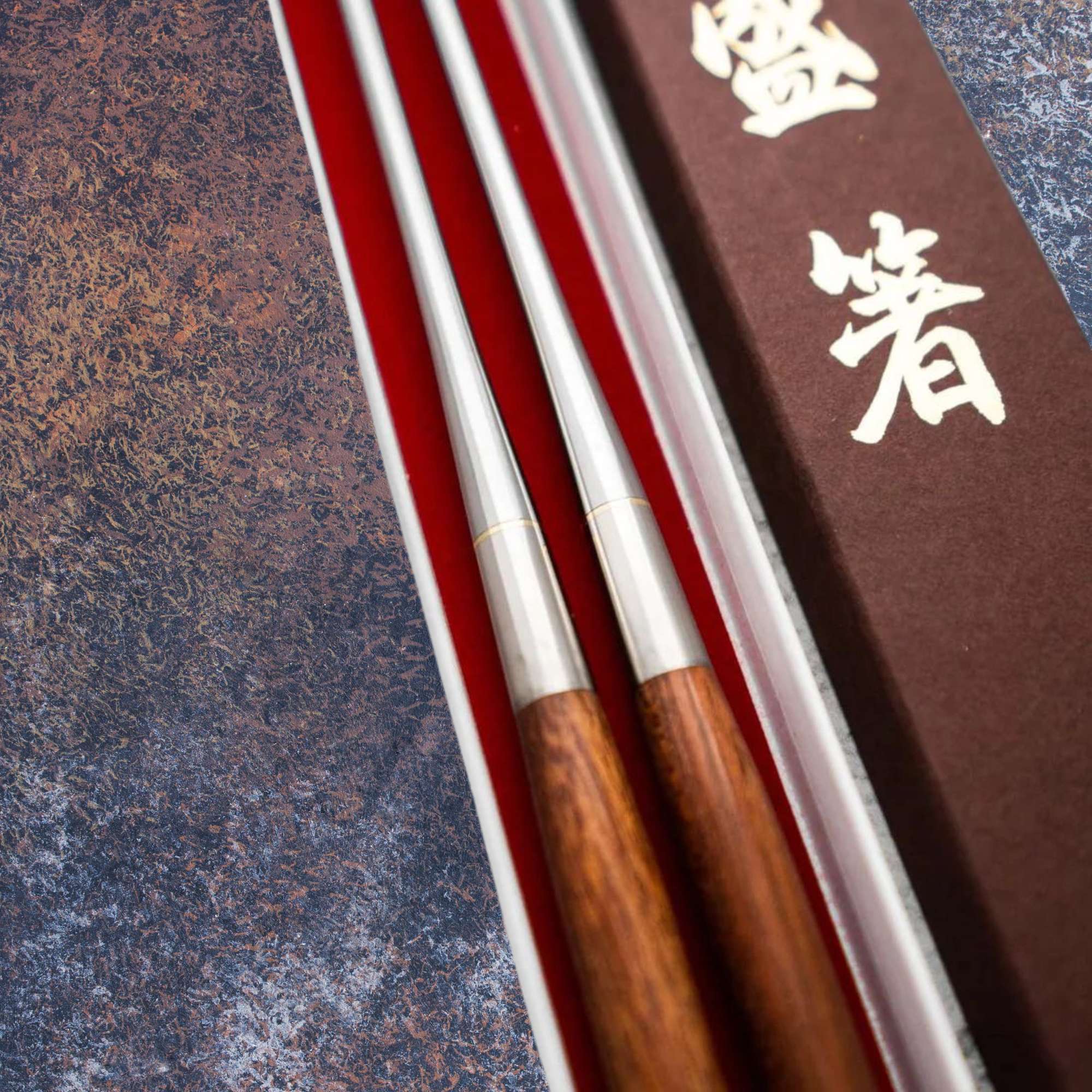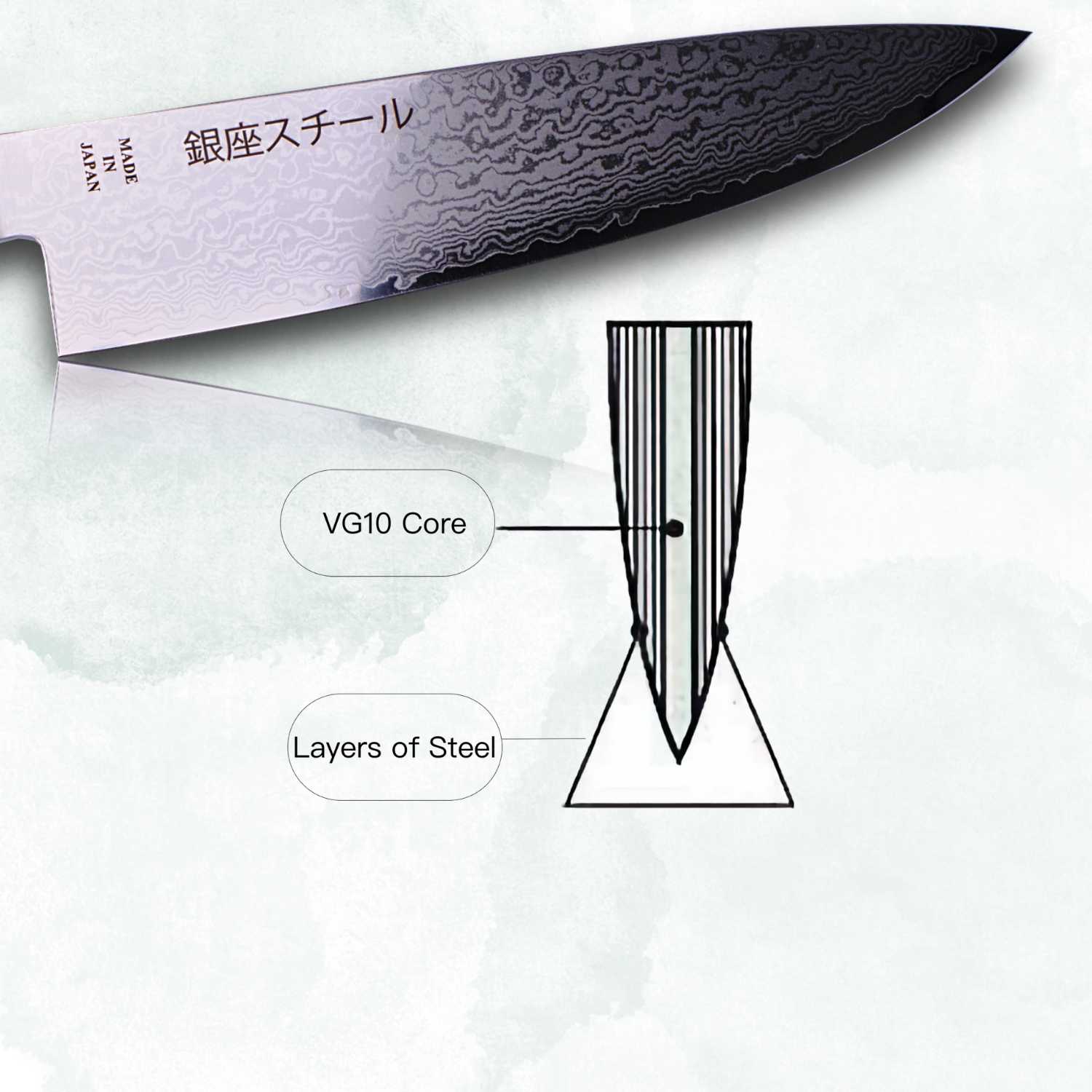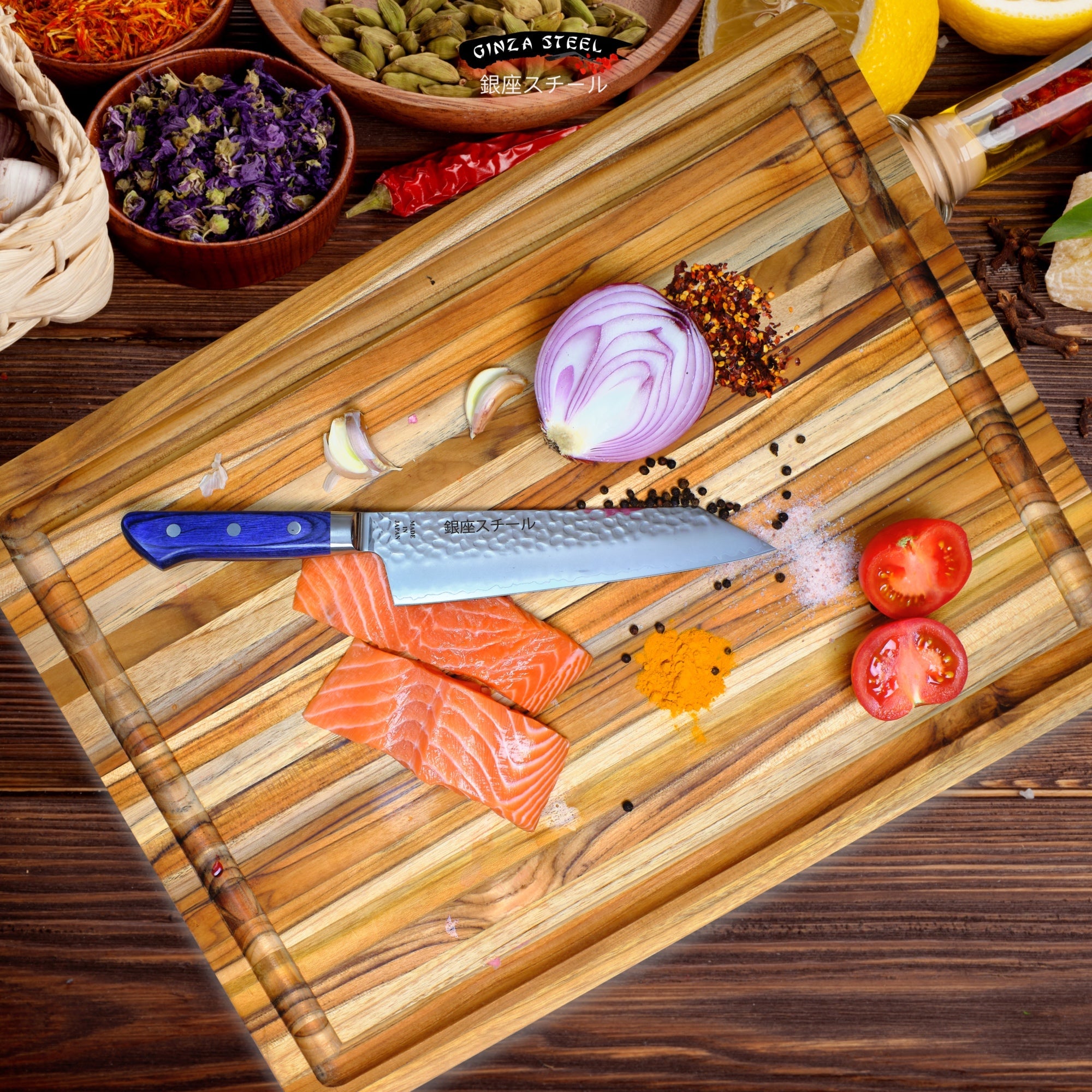In the intricate world of Japanese cuisine, every tool has its purpose, and chopsticks are no exception. These slender utensils come in various sizes and styles, each meticulously designed to serve a specific function. Join us as we delve into the realm of Japanese cooking chopsticks, exploring their types, sizes, and the artistry behind their craftsmanship.
Understanding Japanese Cooking Chopsticks
Sai-bashi (菜箸)
Sai-bashi, the culinary workhorse, boasts an impressive length ranging from 30 to 40 centimeters (12-16 inches). Widely employed in professional kitchens, these elongated chopsticks prove invaluable for cooking, flipping, and serving hot dishes. The extended length ensures that the chef's hands remain safely distanced from the heat source, making them an indispensable tool in the culinary world.
Ryō-bashi (料箸)
Moderation is key with Ryō-bashi, the medium-length chopsticks measuring around 24-27 centimeters (9.5-10.5 inches). Perfect for everyday cooking tasks at home, these chopsticks strike a balance between versatility and manageability.
Kai-bashi (皆箸)
Short and sweet, Kai-bashi measures approximately 18-21 centimeters (7-8.5 inches). These shorter chopsticks find their niche in serving and plating small dishes, adding a touch of elegance to culinary presentations.
Ishii-bashi (石井箸)
Ishii-bashi takes chopstick length to the extreme, sometimes exceeding 60 centimeters (24 inches). Reserved for the intricate preparation of certain Japanese sweets and delicate dishes, these extra-long chopsticks showcase the precision required in the art of Japanese culinary craftsmanship.
Watashi-bashi (渡し箸)
For communal dining experiences, Watashi-bashi comes to the forefront. These long, disposable chopsticks are commonly used for serving communal dishes at restaurants. While they can vary in length, they often share similarities with sai-bashi, making them a practical and hygienic choice for shared meals.
Exploring the Market for Japanese Cooking Chopsticks in Canada
As the world embraces diverse culinary experiences, the demand for authentic Japanese kitchenware, including chopsticks, has seen an uptick. In Canada, a country known for its cultural diversity and appreciation for international cuisines, the market for Japanese cooking chopsticks is worth exploring.
- Local Asian Markets and Stores: Discover a treasure trove of Japanese kitchenware in Asian markets or specialty stores. These establishments may cater to a growing interest in Japanese culture and offer a variety of chopsticks for cooking enthusiasts.
- Online Marketplaces: Navigate popular online marketplaces like Amazon and eBay to find a diverse selection of Japanese chopsticks. Online platforms provide convenient access to a wide range of authentic products, catering to consumers across Canada.
- Specialty Kitchenware Stores: Explore kitchenware stores that specialize in Asian or Japanese culinary items. These specialty shops may offer a curated collection of high-quality chopsticks for cooking aficionados.
- E-commerce and Specialty Websites: Venture into specialized e-commerce websites that focus on Japanese products. These platforms often source authentic kitchenware, providing Canadians with the opportunity to experience the artistry of Japanese chopsticks.
- Cultural Events and Festivals: Immerse yourself in cultural events, food festivals, or markets celebrating Japanese culture. These gatherings often feature vendors selling genuine Japanese kitchenware, offering a unique shopping experience.
Conclusion
Japanese cooking chopsticks are not just utensils; they are a testament to the precision and artistry embedded in Japanese culinary traditions. Whether you're a professional chef or a home cook, exploring the world of Japanese chopsticks can elevate your culinary experience. As the demand for authentic international cuisine continues to rise in Canada, the market for Japanese cooking chopsticks presents a promising opportunity for both enthusiasts and businesses alike.Moribashi chopsticks



















Laisser un commentaire
Ce site est protégé par hCaptcha, et la Politique de confidentialité et les Conditions de service de hCaptcha s’appliquent.